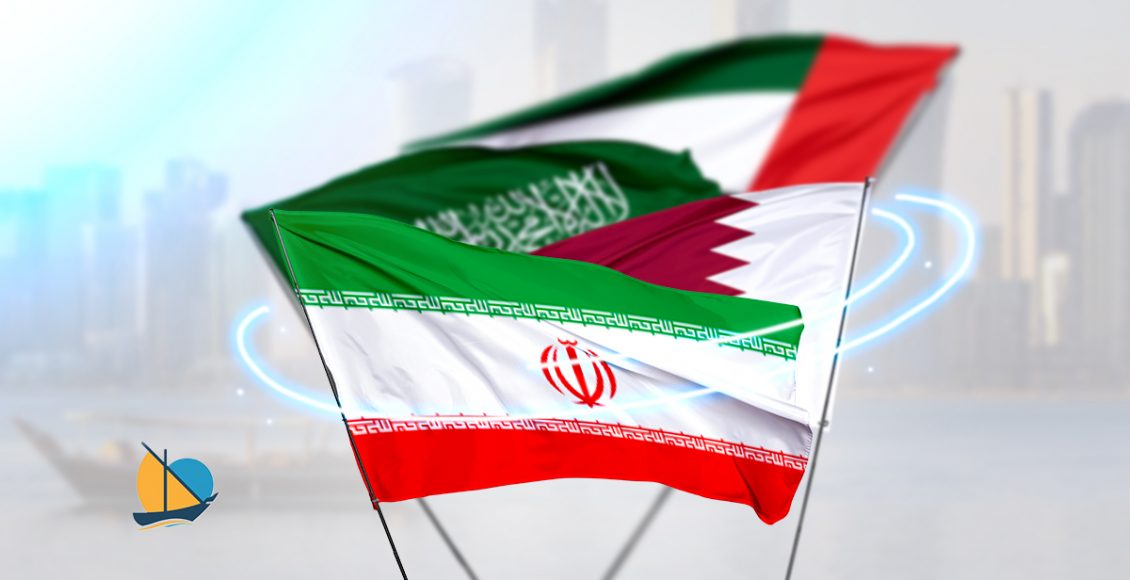It is hard to recall that until January of this year the GCC remained divided with Bahrain, Saudi Arabia, the UAE, joined by Egypt, tilted against Qatar. The Saudis, encouraged by Washington had already been making welcome back noises but the end of the land, air, and sea blockade that had begun in June 2017 caught some observers by surprise. After all, wasn’t the de facto UAE ruler Mohammed bin Zayed a bitter foe of political Islam and didn’t he see Doha as a Muslim Brotherhood redoubt and a vipers nest of Islamist extremists?
MbZ had been the chief architect of a clumsily executed plot that sought to tie the Qatari Emir Tamim to Iran. Mohammed bin Salman the Saudi crown prince had been drafted in to add muscle to the Emirati gambit. Bahrain and Egypt had little choice but to make up the numbers considering how indebted, in financial terms, they are to the UAE and Saudi Arabia. It was the Quartet versus Qatar. But as the years dragged on it was becoming clear to MbS that the feud was garnering only derision bordering on contempt for the Quartet while the Qataris were securing kudos for the mature way in which they dealt with the blockade. They didn’t for example declare force majeure on the Dolphin pipeline carrying Qatari gas to the UAE. And they consistently declared themselves open to dialogue, even as both sides waged an often vicious media war.
So MbS took the initiative and convened a summit meeting in the historic city of Al Ula 300 kilometers north of Medina. The blockade was dropped with immediate effect and it is not clear what, if anything, the Qataris had to agree to in order to secure an end to the feud. Post Al Ula, friendships, like roses, started to blossom in what had been a diplomatic desert.
In May Tamim flew to Jeddah where he was greeted affectionately by MbS on the tarmac. As reported by Al Jazeera (the network that at the beginning of the blockade the Saudis and Emiratis had demanded be shuttered): “The two leaders then held talks at al-Salam Palace, where they discussed bilateral relations and ‘the means to enhance them in different fields’, as well as regional and international developments, according to Qatar’s state media.”
It took a little longer for MbZ to come around but then in September he sent his brother Taynoon, the Emirati National Security Advisor to meet with Tamim and MbS at one of the Saudi crown prince’s mega-projects, the ultra-luxurious Red Sea Project designed for very well-heeled tourists. There they were, the three of them in t-shirts and shorts, smiling broadly, a perfect picture of youthful modernity and fraternal friendship.
Having taken the lead in ending one dispute, MbS, it would seem, is now taking on an even bigger challenge: Iran. In April, the Saudis and Iranians were engaged in secret talks in Baghdad with the Iraqi prime minister Mustafa al-Kadhimi presiding. And stories persist that the two sides may be close to restoring diplomatic relations that were severed in 2016. That was after an Iranian mob attacked the Saudi embassy in Teheran in protest at the beheading of the Saudi Shia cleric Nimr al-Nimr.
“The Iran-Saudi dialogue is on the right track,” Iran’s Foreign Minister Hossein Amir-Abdollahian rather coyly suggested adding “we have achieved results and agreements, but we still need more dialogue.” Diplomatic recognition aside, Yemen must surely have been on the table. Certainly from the Saudi point of view, Iranian influence on the Houthis to end the war, something MbS is desperate to achieve, may have been a quid pro quo. For his part, did the crown prince dangle an enticing carrot: a non-nuclear weapons proliferation deal, in effect a regional JCPOA, one that would open up Iran to Saudi investment including the urgently needed rebuild of the Iranian energy infrastructure?
It is a bold thought. Increasingly Gulf leaders are seizing the foreign policy initiative and no longer relying on America or seeking Washington’s approval. Joe Biden had set the JCPOA as a priority but as the months drag on there is little impetus. What happens then if the Saudis and the Iranians, with Iraq serving as a go between, agree a deal without Washington (and Europe’s) involvement?
Barack Obama, in his approach to the Middle East got most things wrong and few things right. However his greatest blunder may prove to be the failure to include regional players, and in particular the Saudis and the Emiratis, in the initial JCPOA. What a coup, and what a statement of intent, if those key regional partners, with Israel’s tacit agreement, do a nuclear deal with Iran and Washington and Europe, who for decades have used and abused the Middle East, are left on the outside looking in. That would truly be a triumph of new friendships over old and bitter enemies


